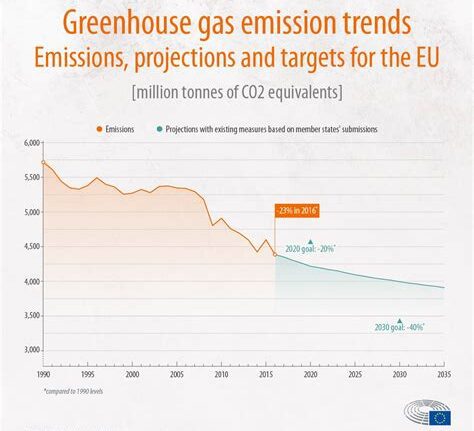The Colstrip coal plant in Montana is making headlines for seeking an exemption from stringent pollution regulations. This move has sparked controversy and raised concerns among environmentalists, health experts, and policymakers alike.
Environmental Impact
The Environmental Protection Agency (EPA) has labeled the Colstrip power plant as the most significant emitter of harmful particulate matter in the nation. These emissions, particularly fine particulate matter or soot, pose serious risks to both public health and the environment. The plant’s request for a pollution exemption has ignited a debate on balancing economic interests with environmental protection.
Political Maneuvering
Amid shifting political landscapes, the Trump administration’s invitation for companies to apply for presidential pollution waivers via email opened the door for facilities like Colstrip to seek regulatory relief. The Biden administration’s 2023 rule aimed at enforcing stricter pollution controls presented a challenge for the aging coal plant. With mounting pressure to comply with new standards, the facility opted to request a two-year reprieve from these regulations.
Community Concerns
While Montana’s congressional delegation supports Colstrip’s plea for an exemption citing economic repercussions of potential closure, critics argue that this narrative overlooks crucial health implications. Residents living near the plant are worried about their well-being as studies have linked fine particle pollution to various respiratory and cardiovascular ailments.
Expert Insights:
Environmental Impact: Dr. Greenfield, an environmental scientist, emphasizes that granting exemptions to high-polluting plants sets a dangerous precedent that could hinder overall efforts to combat climate change.
Economic Perspectives: Economist Dr. Patel suggests that transitioning towards cleaner energy sources can create new job opportunities and drive innovation in affected regions like Colstrip.
Health Concerns: Dr. Williams, a public health expert, stresses the urgent need to prioritize human health over short-term economic gains by implementing sustainable solutions that protect both people and the planet.
As discussions surrounding Colstrip’s exemption request continue to unfold, it remains imperative for stakeholders to address the complex interplay between industry needs, environmental stewardship, and public health considerations. Balancing these factors effectively will be key in shaping a sustainable future for all involved parties.









Leave feedback about this